DJ T played one of the top sets of 2009 at Basic NYC, when he dropped an extended set for our Halloween bash. It was a truly ghoulish affair; just check out the photos to see for yourself. Here's gallery #1, gallery #2, and gallery #3.
Few electronic music labels have made more of an impact on the international scene in the last few years than Germany’s esteemed Get Physical. In the last seven years, Get Physical has turned names like M.A.N.D.Y and Booka Shade into international stars, and earned a reputation for finding cutting talent and sounds.
Behind all of it is DJ T, aka Thomas Koch, the label’s guiding force and figurehead. An incomparable DJ and producer, his musical career covers more than 20 years of DJing and making music; he’s a virtual library of the history of electronic dance music. That knowledge comes to the fore on his brand-new album “The Inner Jukebox”, which conjures the late ‘90s era of house music and refines it for modern dancefloors.
Currently embarking on a mammoth worldwide tour, DJ T hits Sullivan Room for the very first time this Saturday, October 31st. It’s Halloween, so expect some extra ghoulish treats and tricks from this tastemaking artist. He took a few moments to talk about the album, and how this self-described “minimal hater” is enjoying the current house music renaissance.
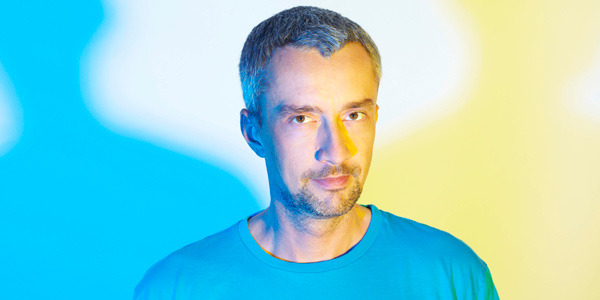
Let’s talk about “the Inner Jukebox” and how you put it together. It’s a bit of a tribute to the classic house music sound from the 90s. Why did you pick this period to focus on for this album?
It was less a decision than it was something that came naturally by itself. The first album was more about my whole influences from the late 70s to the late 80s, and what I do in the studio is always strongly related to what I do as a DJ, because I’m more of a DJ/producer than a normal “producer”. So in the studio I’m always reflecting what I’m doing as a DJ. Since the time that I was doing the first album, when I was playing as a DJ more of this whole electro, Italo-disco, funk, disco fusion retro stuff, I’ve been getting back to a bit more contemporary stuff and playing more contemporary sounding modern house and tech-house and techno that is a bit more in the here and now. Now it’s a bit more about different programming, and a bit more on the “minimal” side of things – not the typical minimal, but house and techno that’s still funky and groovy and bouncy, but a bit more minimal programmed in terms of the drums.
So when I was going to the studio it was just coming naturally but this time it’s a bit more about classic house influences from the past 15 years.
What really stands out for you as a DJ and a music lover about house music from the 90s?
House music at this time was really progressing, the stuff that was being made in Chicago, and all these labels that were representing the typical 90s sound were really exploding at the time. Like Strictly Rhythm, or Chicago labels like Relief, Cajual. To explain what was typical for this kind of house music…that’s a long story.
That’s why the album is called “The Inner Jukebox.” When I’m in the studio, and even when I’m not in the studio – it’s a constant flow of reminiscences and influences in my head. At this time when I was in the studio it was just about citing techno and house music that was there in the 90s in Europe, coming from the US, sometimes it was the Benelux style that was coming to my head. But what else can I say – there wasn’t a plan. It was just coming to me.
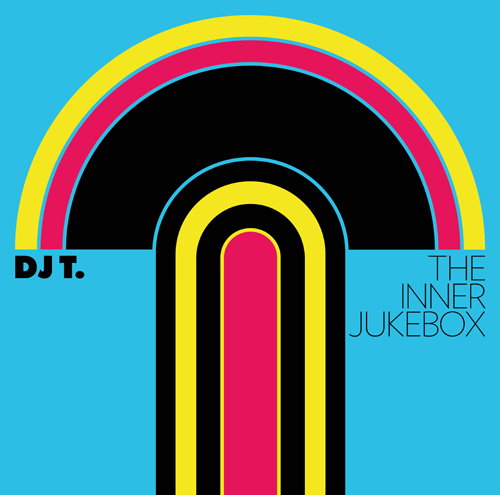
Most DJ/producers who make artist albums try to do something different instead of really focusing on dancefloor music. Why did you decide to go in this direction in with the album?
To be honest, I wanted to try to make something more than a pure club album and I was thinking that before I started, do I want to do the same as last time? A club album that mainly reflects what was I playing at the club at the moment, or did I want to tell more of a story? Actually, I wanted something in between a so-called club album and something that you could easily listen to at home or in the car. And from my own perspective, I failed a little bit – because it’s a good club album, but its not….I wasn’t album to make it flow with the tracks on the album, to achieve that listening quality that I was hoping for. But maybe next time!
If I did the album now I think I’d be able to do that more. Because at the moment I’m extremely inspired by really musical and deep house music, and by other a bit more leftfield stuff that’s more on the song side of things. So if I did it now, I’d probably be a little more inspired to add some tracks that were going more in the other direction.
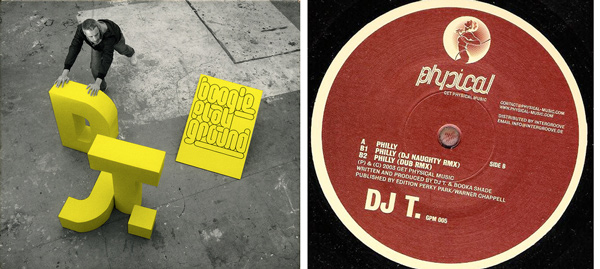
There’s been a lot of talk about how minimal is dead and everyone has moved on to house. What are your thoughts, as someone who is right of the center of what’s going on with dance music in Europe? What kind of sounds are getting your attention right now?
I was actually a minimal hater. I don’t want to say that there’s no good music at all in this category, but the so-called minimal, what was typical for this category of music, for me, it was one of the darkest ages of electronic dance music. My roots are more in soulful music and disco and funk and stuff that has a generally warmer atmosphere to it, and for me the biggest part of the so-called minimal sound was really sterile and unsexy music. I was desperately hoping that there would be a renaissance of funky and sexy and warmer stuff. And finally, in the last 12 to 18 months, we have now this house renaissance, especially in Europe.
It was strange, because suddenly when this change came, it was going really fast. Many people who were playing all this minimal stuff for years now, and almost had it tattooed on their heads, suddenly they were playing all this percussive house music again. It changed within a few months. So what I can see is that electronic music is for many people, it’s a kind of a fashion statement, a pose. It’s a bit sad that its like this, because every time there’s a new thing coming, especially the young crowd, gets really limited in their perception. Only this style is ruling and nothing else can be played. So for a long time when I was playing in Europe, I was really suffering from this minimal dominance.
And I’m really happy that house came back, and now you have – besides this one minimal-percussive house formula that’s really ruling in Germany and Europe at the moment, you have some more things on the house side going on. Luckily it’s really getting diverse now. For me, this is what its basically about now – it’s a big revival of house music and there are so many new good fresh producers and labels and DJs, and for me it’s a really good time at the moment. Due to the whole promotion of the album, I was doing for the first time a lot of podcasts and mixes, and for the research of the mixes I was getting really deeply into all kinds of house music that’s around at the moment, from really deep musical stuff that’s almost more for home listening, to everything that you can play that is functional. I’m just really inspired at the moment.
There are also many young people who are also really inspired by old stuff. Do you know a guy named Motor City Drum Ensemble?
Yes.
He’s one of my favorite producers at the moment – he’s really sounding like a white Moodymann, you know? He’s only 22 or 23 and he’s from Stuttgart in Germany. I actually thought until a few weeks ago, when I was ordering a remix for my third single, I kind of thought he was a black American guy. These kind of fresh people are really kicking ass at the moment.
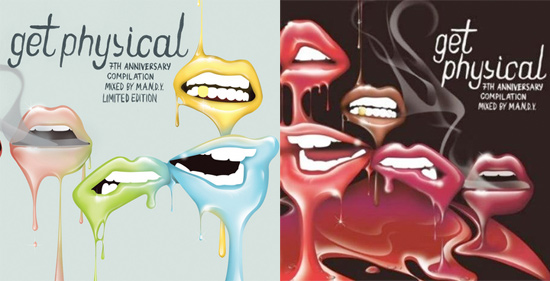
Not only did you album come out this year, but you also celebrated 7 years of Get Physical. How much of your time is devoted to running the label itself, and what are you most excited about with the label these days?
The last three years was a bit of a process where the M.A.N.D.Y guys and the Booka Shade guys were drawing themselves out a bit of the business, and they were focusing more on their artist careers because it was really exploding for them. I was going a bit more into the business. But in the middle of last year, I was telling my partners – hey, next year has to be about DJ T for me again. So I did the production of the album, did the whole promotion, and now I’m touring.
For me its mainly about two different things. On the one hand, I’m the main A&R for the three labels, so I almost manage all the single releases that are coming out on Get Physical, Get Digital and Kindisch, our house label. Kindisch I’m basically doing almost completely on my own. Philip from M.A.N.D.Y cares a bit more about the long player and compilation projects on Get Physical. And on the other hand, I’m still in the day-to-day business and try to give input in every section of the business. Doesn’t matter if it’s the promotion or marketing or if it’s the events, or something else. It was a really tough year because I was both caring for my own stuff and doing the album, and still in charge of all the other stuff. I want to reduce that for next year, and change some of the structures. And the business has also become hard for us – we’ve been hit as well as all the others have, by the crisis. So we also have to restructure a bit.
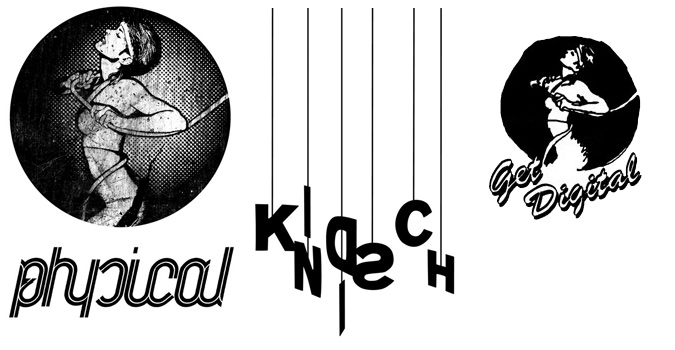
The label has really come into its own now, with over 100 releases, a digital label, a sublabel (Kindisch), a staff. What were your plans when you started the label, and did you think it would develop into something like this?
In the beginning we just knew that the combination of the six people, that when we put together all of our abilities, our connections, our experience in 10-15 years of business…we knew there would be great potential. We still had to put out great music, you know? But when we started it – there was this niche that we were directly occupying in a way. It wasn’t planned, it was more by accident, so in the first few years we did this kind of blueprint sound for the so-called electro-house and tech-disco sounds, and suddenly everyone form the outside was calling it that. And with the first five releases we were directly on the map internationally. So on the one hand there was this great potential of the six people working together, and the combination of the musical knowledge, but at the end we were maybe just a bit lucky to do the right sound at the right moment.
You guys must get bombarded with demos and people who want to be on the label. One thing we’ve noticed about Get Physical is how consistent you’ve been from the start about the artists you work with. What does it take for an artist to get released on Get Physical?
People are sometimes still asking for the sound of the label. So there’s no clear fingerprint anymore in terms of the label’s sound. Sometime ago, two years ago, we were sitting together and it was a really important moment. We were putting the question on the table – do we want to stay as one of these common labels that is releasing mainly good club music on the 12” format? Or do we want to expand the range of styles and do we want to go in a direction that’s maybe a bit more similar to a label like Warp? Where we just release everything that we like, and what is edgy in a way. Like with what Peacefrog was doing with Jose Gonzales. These labels were showing a way that we like, and thought was really inspiring. That a label that was known for years for being a typical electronic dance music label, but they suddenly release an album from a guy like Jose Gonzales, which was more of a typical singer songwriter album. And we did the same with Raz Ohara. And since we did that, there’s absolutely no borderlines anymore. So to come back to your question, I couldn’t answer the question stylewise. There’s still the filter of at least 3 or 4 of the partners that a longplayer has to go through. So maybe that’s still part of the secret of the success, that at least 3 different people have to say yes, I really like that stuff, I really want to do it. And we have different tastes, and coming from different directions, so if we agree on something, it has to be really good. But it can be many different styles – we’re really open.
Are you looking to put out just one-shot releases? Or are you looking to build your artists? Or is it a bit a both?
Generally we want to work long-term with the artists. And we want to work with artists where we see the potential so that there coud be enough substance for an album. But at the same time when we get a demo from wherever, and it’s a complete no-name guy, we could put it out. But we have these other labels – with Get Digital we’re focusing more on the functional club stuff than the main label. So it’s a good situation to have these two platforms, to spread it a bit. And we are also – we also have projects where we’re releasing compilations with just one track by an artist, the Full Body Workout compilations on Get Physical. We have all these options you know.






